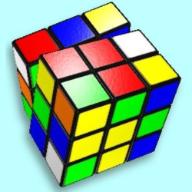I have 3 boxes, each box contains 10 balls numbered from 0-9. what is the probability that the sum of 3 balls i get from each box will be 1?
2017-02-20 5:51 pm
回答 (13)
2017-02-21 12:02 am
✔ 最佳答案
The only way to make a sum of 1 is to draw a 1 from one box and 0s from the other boxes. There are 3 ways to get the desired outcome:
- First box 1, other boxes 0 -> 100
- Second box 1, other boxes 0 -> 010
- Third box 1, other boxes 0 -> 001
There are 3 favorable outcomes.
There are 10³ = 1000 possible outcomes.
Answer: 3/1000 = 0.003
P.S. If the sum were any bigger, you'd want to consider other methods of counting the favorable cases. If the sum were 9 or less, then you could use the stars and bars method to figure out how to partition that sum into 3 distinguishable parts.
Let's do your sum of 1 that way:
3 objects (1 star + 2 bars), choose position of the 2 bars (or the 1 star)
C(3,2) = C(3,1) = 3 ways
P(sum = 3) = 3/1000
Now let's do a sum of 9 that way:
11 objects (9 stars + 2 bars), choose position of 2 bars (or the 9 stars)
C(11,2) = C(11,9) = (11 x 10) / 2 = 55 ways
P(sum = 9) = 55/1000
If it is more than 9 then you have to worry about not going over 9 in any place. Let's take an example with 15, as you asked.
First ball = 0, Next balls sum to 15 --> 69, 78, 87, 96 (4 ways)
First ball = 1, Next balls sum to 14 --> 59, 68, 77, 86, 95 (5 ways)
First ball = 2, Next balls sum to 13 --> 49, 58, 67, 76, 85, 94 (6 ways)
First ball = 3, Next balls sum to 12 --> 39, 48, 57, 66, 75, 84, 93 (7 ways)
...
First ball = 6, Next balls sum to 9 --> 09, 18, 27, 36, ..., 90 (10 ways)
First ball = 7, Next balls sum to 8 --> 08, 17, 26, ..., 71, 80 (9 ways)
First ball = 8, Next balls sum to 7 --> 07, 16, 25, ..., 61, 70 (8 ways)
First ball = 9, Next balls sum to 6 --> 06, 15, ..., 51, 60 (7 ways)
Total ways: 4 + 5 + 6 + 7 + 8 + 9 + 10 + 9 + 8 + 7
P(sum = 15) = 73/1000
When you get further along in probability, you'll also learn about generating functions that can make this easier to figure out without having to enumerate all the cases.
Answer:
P(sum = 1) = 3/1000 (or 0.003, or 0.3%)
2017-02-20 5:55 pm
P(sum of 3 balls got from each box = 1)
= P(1,0,0) + P(0,1,0) + P(0,0,1)
= 3 × (1/10) × (1/10) × (1/10)
= 3/1000
= P(1,0,0) + P(0,1,0) + P(0,0,1)
= 3 × (1/10) × (1/10) × (1/10)
= 3/1000
2017-02-21 9:47 am
3/1000. There's 10 balls in each of the 3 boxes, so there's a total of 10^3 ways, or 1000 ways to pick one ball from each box. There are only 3 ways to get three balls with numbers that total 1: (0,0,1), (0,1,0) and (1, 0, 0). So the probability of drawing one ball from each box, without replacement, I assume, and the numbers on the balls total 1 is 3/1000.
2017-02-21 2:13 am
Because of the way the question is worded, the answer would be a 0% chance, simply because you are taking 3 balls from the first box, 3 from the second, and 3 from the third.
2017-02-20 6:02 pm
1/1000
(1,0,0) (0,1,0) and (0,0,1) is the same numbers REPEATED. (Do NOT count as 3)
(1,0,0) (0,1,0) and (0,0,1) is the same numbers REPEATED. (Do NOT count as 3)
2017-02-20 5:53 pm
One in one thousand.
2017-03-19 5:13 pm
3/1000 ...3%
2017-02-27 11:44 am
3/1000 ...3%
2017-02-26 9:57 pm
3/1000 .........3%
2017-02-25 10:40 am
p(sum of 3 balls got from each box = 1)
= p(1,0,0) + p(0,1,0) + p(0,0,1)
= 3 × (1/10) × (1/10) × (1/10)
= 3/1000
= p(1,0,0) + p(0,1,0) + p(0,0,1)
= 3 × (1/10) × (1/10) × (1/10)
= 3/1000
2017-02-21 12:30 pm
Very unlikely but thanks for asking
2017-02-21 1:25 am
3/1000 .3%
2017-02-20 8:46 pm
Possible outcomes: 0-0-1, 0-1-0, 1-0-0. 3/1000 probability.
收錄日期: 2021-04-18 16:02:30
原文連結 [永久失效]:
https://hk.answers.yahoo.com/question/index?qid=20170220095109AAUQH8l


